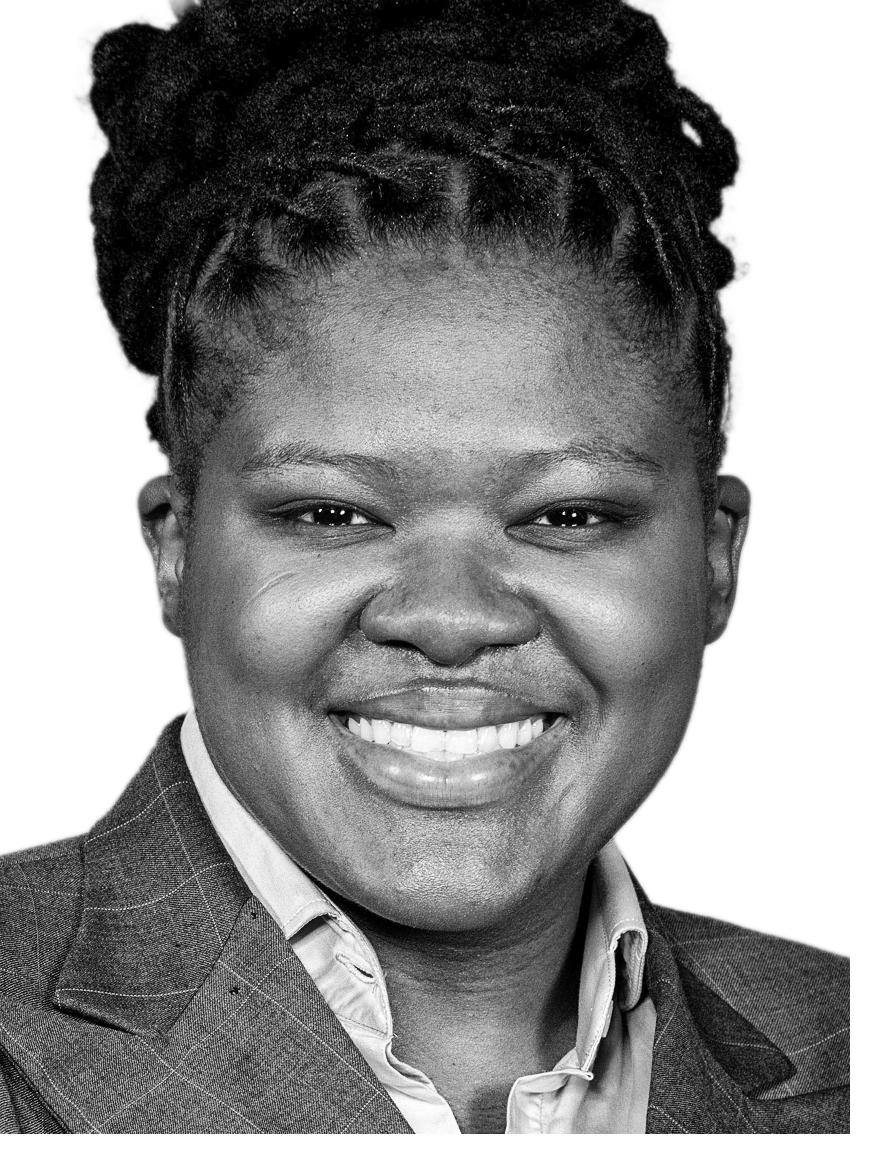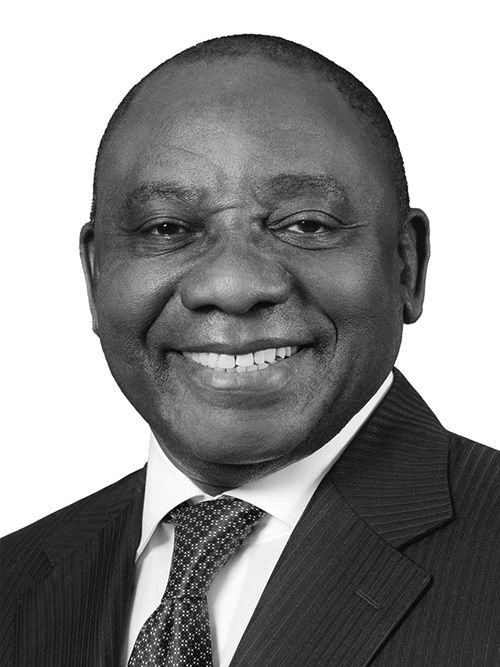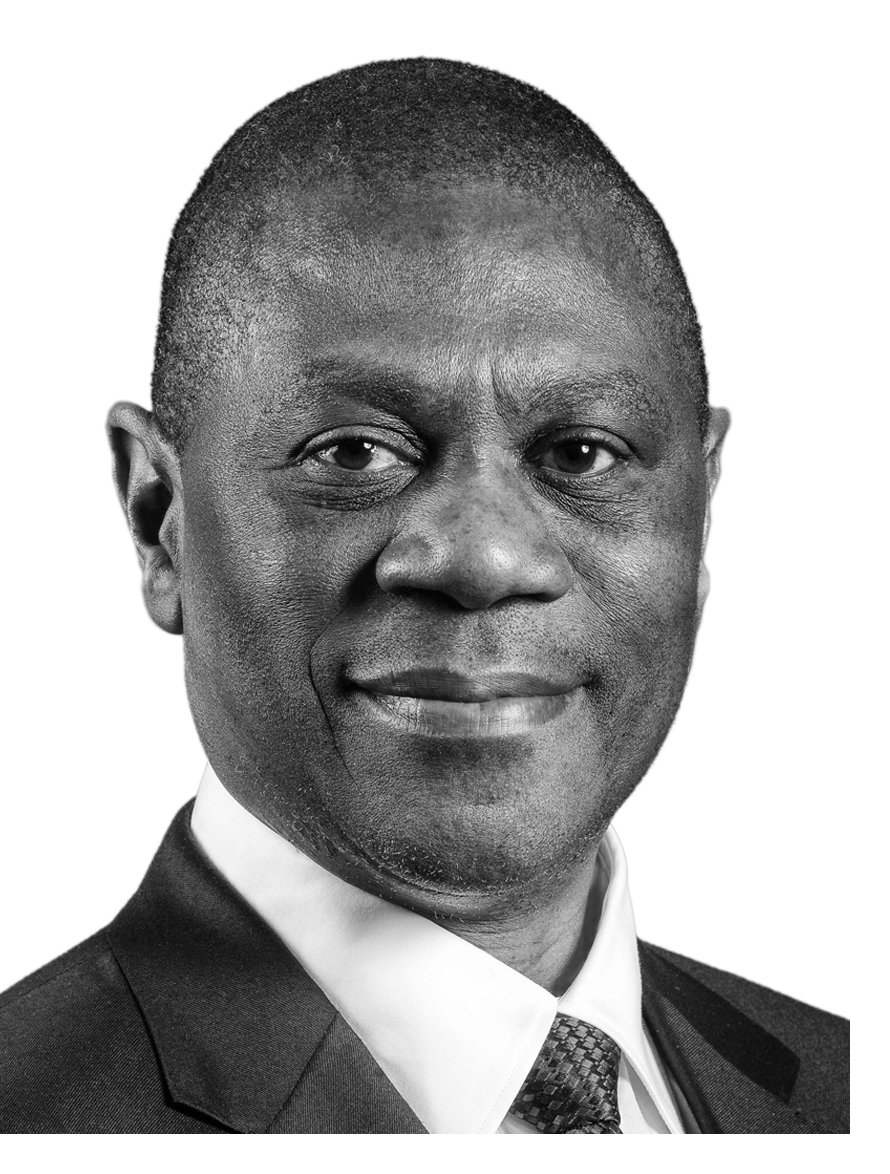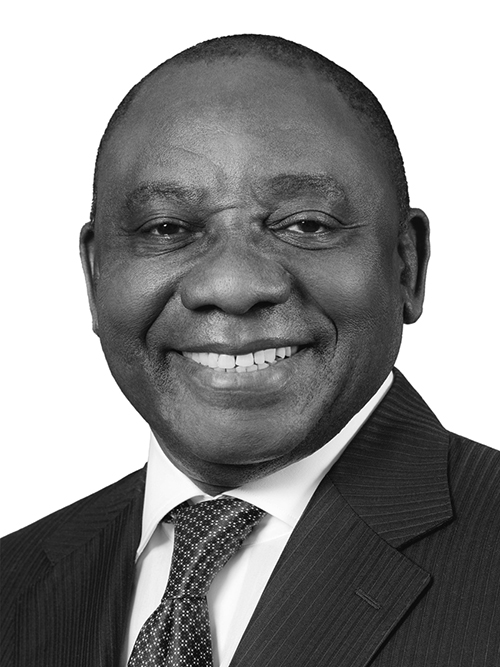Programme Facilitator, Prof Somadoda Fikeni;
Director General in The Presidency, Phindile Baleni;
Cabinet Ministers, and Deputy Ministers
Premiers of our Provinces present here;
Directors-General;
Heads of Department;
Facilitators, Speakers and the Panellists;
Representatives of Organised Labour, Organised Business, Academia, Research Institutions and Civil Society;
Ladies and gentlemen,
It is my distinct honour to open this important seminar — a timely platform for confronting one of the most consequential and sensitive issues facing South Africa’s state machinery: the political-administrative interface.
This happens just before our one year anniversary as the Government of National Unity (GNU) that is bound together by a quest to attain three strategic priorities: building inclusive economic growth, reducing poverty and building an ethical, capable and development state.
Central to us attaining these three strategic priorities is the ensuring sound institutional design that responsive to the prevailing challenges and the nuances of a modern state that is agile enough to respond to a rapidly changing environment.
In this vein the synthesis evaluation we are reflecting on today — conducted by the Human Sciences Research Council under the stewardship of the Policy and Research Services in The Presidency — is not a routine performance review. It serves as a sobering mirror held up to the State, revealing systemic vulnerabilities, institutional dysfunction, and a lack of protection for those entrusted to lead departments and drive delivery.
We convene with the recognition that effective governance requires more than good intentions; it demands functional systems, clear accountability, and seamless coordination between those who set policy and those who implement it.
It tells us what many of us have long known but perhaps not yet fully addressed:
• That high turnover among Directors-General (DGs) and Heads of Department (HoDs) erodes institutional memory, undermines policy continuity, and dampens morale.
• That political interference in administrative decisions across Government and State owned enterprises— particularly in appointments, procurement, and financial management — creates a precarious environment, making even our most qualified professionals hesitant to serve or unable to act with integrity.
• That performance management systems and legal frameworks often incentivise short-term, siloed compliance, rather than long-term collaboration and innovation.
• And that career civil servants are being asked to carry constitutional mandates in spaces that lack stability, clarity, or professional respect.
• The net effect of all these institutional weaknesses erodes the trust of the people, undermines investor confidence, and compromises our stranding in the international community as it perpetuates the perception of a failing state.
The significance of today's engagement cannot be overstated as we progress in our commitment to establishing a capable and developmental state, which continues to be a key priority of the 7th Administration.
We believe that a capable and developmental state refers to a government that has the essential resources and skills to successfully execute policies that foster economic growth and enhance the well-being of its citizens. This requires a knowledgeable and effective Public Service, strong institutions, and a dedication to tackling the fundamental issues of poverty and inequality.
Thus, a developmental, capable and ethical state requires skilled managers, especially DGs and HoDs, with clear lines of authority and accountability to execute their duties in a way that achieves optimal outputs and agreed outcomes. This requires a political and administrative environment that is free from undue political interference, with effective systems, and with a consistent and fair application of rules.
Ladies and gentlemen,
In South Africa, the urgency to enhance state capacity has never been more pressing. Our nation has made strides in the past, overcoming immense challenges to secure our democracy and pursue socio-economic progress. Yet, we acknowledge that there are areas where our state machinery still lags behind, hindering our ability to deliver on the promises of our Constitution.
We acknowledge that our ability to deliver on the promises we have made to our citizens in the Medium-Term Development Plan and the National Development Plan 2030 rests fundamentally on the capacity, stability and professionalism of our public service.
This makes it important that we address with urgency the foundational issues that have hampered our progress, thus far. If we are honest with ourselves, we will all agree that tensions and instability in relationships at this interface clearly remain a matter of great concern for all respondents, both Accounting Officers and Executive Authorities. Without doubt, these problems, are compounded by a history of apartheid and its lingering effects, corruption, skills gaps, and a lack of accountability.
However, the question of political and administrative interface continues to be a source of concern for a well-functioning government that provides services to its citizens.
Ladies and gentlemen,
In light of the fact that we are aware of the factors that are preventing us from making necessary interventions to obtain the objectives that we have set in out in our blueprint of a development state, achieving a developmental state at a rapid pace, we need to ask ourselves how we can effectively construct a capable state.
A state that will ensure that citizens have access to basic services, a growing economy that creates jobs and our youthful population is inspired to build viable start-ups that can compete on a global level.
None of this is abstract. The evaluation findings show that when the interface is unstable, plans remain unfunded, policies are inconsistently applied, and citizens lose trust in the state. When Directors-General are routinely removed or undermined, when procurement processes are politicised, or when coordination efforts fail due to poor design and mistrust — it is not just departments that suffer; it is the South African people.
If we are serious about building a capable, developmental and ethical state, we must recognise that reforming the interface is the precondition — not the afterthought.
We must move:
• From compliance to coherence
• From fear to integrity
• From institutional drift to decisive alignment
This calls, amongst others that we re-visit our institutional design to respond to governance deficits that in certain instances manifest themselves through acts of corruption and malfeasance. The recently launched white paper on local government , which seeks to review the 1998 version, is one among the many interventions being undertaken by this administration.
Equally, as Government, we must deal with corruption which jeopardises sustainable economic development, ethical principles, and justice. Corruption, in both public and private sector erodes public trust in Government and undermines service delivery, impacting the most vulnerable within society.
In our quest of effectively building a capable state, we also need to put a sharp focus on the leadership. The findings of the report underscore that the instability at the highest echelons of our public service has a negative impact on the state’s ability to deliver on its development objectives.
It is important to highlight that the lack of consistency in leadership and institutional memory, particularly of Directors-General, compromises the Government’s ability to implement and oversee policies in the long term.
To add to this, if we are to make significant strides in the implementation of our development goals, we must work towards the de-politicisation of the Public Service through the recommended policy and legal reforms.
The depoliticisation Accounting Officers and Executive Authorities relationship is a matter of urgency.
It is important to stress that de-politicisation is not about diminishing the importance of political leadership, but rather about role clarification, appropriate devolution of power and clarifying the lines of accountability to enable optimal functioning of both the executive and administrative leadership. This means that the Public Service needs to be immersed in the development agenda but insulated from undue political interference.
We need to institutionalise administrative duties and the ability to carry out Government programmes regardless of political leadership transitions. Transitioning to a capable developmental state necessitates a series of bold actions that place the state at the centre of the transformational process, most notably with respect to leadership.
However, the state needs the skilled workforce to drive economic growth, reduce unemployment, and foster innovation. A cornerstone in our skills development strategy is our collaboration with the National School of Government, which has played a significant role in supporting our objective of professionalising the public service.
As Chairperson of Human Resource Development Council (HRDC), we are also playing a key role in the professionalisation of South Africa, particularly within the public sector, by focusing on strategic planning, skill development, and addressing skills gaps. It also monitors the implementation of HRD strategies and provides a platform for social partners to address challenges.
Investing in continuous training and professional development is crucial for public servants to effectively implement sustainable development policies and programmes. This equips them with the necessary tools and knowledge to tackle complex challenges and drive innovation.
Distinguished guests,
We cannot ignore the fact that South Africa stands at a crossroads where institutional stability is no longer merely about administrative goals, but an essential component of our efforts to advance inclusive economic growth, create meaningful employment opportunities, and reduce the persistent poverty that affects so many of our citizens.
Through the discussions to be held at this round table, we hope to work together to accelerate and deepen this professionalisation agenda as we interrogate how the political and administrative leaders can better work together.
The Government is implementing a National Framework towards Professionalisation of the Public Service to improve service delivery, address poor performance among senior staff, and improve retention. The framework focuses on meritocracy, competency, impartiality, and accountability, aiming to build a capable, professional, and ethical government.
Approved by Cabinet in October 2022, the framework signifies the Government's commitment to improving the Public Service's capability. The establishment of the Head of Public Administration is a significant milestone in stabilising the political-administrative interface and promoting merit-based appointment of department heads.
Additionally, the Sixth Administration passed the Local Government: Municipal Systems Amendment Act and initiated a set of legislation to professionalise local government. Parliament is currently processing amendments to the Public Service Act, the Public Administration Management Act, and the Public Service Commission Amendment Bill. These Bills are currently before the National Council of Provinces (NCOP) for concurrence.
Through the Public Service Commission Amendment Bill, in particular, the mandate of the Public Service Commission (PSC) will now be extended to include local government and public entities. This will strengthen its powers to support Government efforts in professionalising the Public Service.
Additionally, “The Synthesis Evaluation on State Capacity”, conducted by the Human Sciences Research Council (HSRC), provided compelling evidence-based insights into the challenge we face. The report confirmed the issues identified in the professionalisation framework and once again stressed the need for consistency in leadership to realise long-term development goals.
In essence, there is strong recognition that a successful and professional Public Service must be supported and enabled by a sound legal framework, guided by constitutional principles and robust legislation. Equally important is the cultivation of strong intergovernmental relations that enable seamless cooperation across national, provincial, and local spheres.
This is where the issue of intergovernmental collaboration for effective service delivery comes into effect. The Constitution of the Republic of South Africa, 1996, provides institutions with guidelines on how to collaborate and coordinate among all three spheres of government to avoid conflicts of interest.
Ladies and gentlemen,
I would want to end by pointing out that Small, Medium and Micro Enterprises (SMMEs), especially those from disadvantaged communities, significantly contribute to the construction of a capable state. They drive growth, job creation, and innovation, thus fostering inclusive transformation, supporting marginalised communities, and contributing to the nation's economic diversification. SMMEs are vital engines of growth and development.
Government recognises the importance of SMMEs and provides support through various initiatives, including financial assistance, business infrastructure support, and facilitating market access.
However, we need to improve in how we support our small businesses who contribute to our economy and provide the much-needed employment. This includes ensuring that small business are always paid on time by all Government departments and agencies.
In this regard, I have proposed the establishment of War Rooms in accordance with the three objectives of the MTDP, as decided by the Cabinet. These will include a War Room on the Economy and Jobs, a War Room on Poverty and Hunger, and a War Room on Clean Governance. Part of the main priorities of the Clean Governance War Room will be the prioritisation of the 10 to 15 Day Payment cycles and Transformative Procurement of SMMEs.
We have been working to improve the payment cycle process since my address on 5 May 2025, during the launch of the Transformation Fund. We hope that you will collaborate with us to ensure that this becomes a component of the performance evaluation of the Heads of Department and Political Heads, with consequences for those who do not meet the standard.
I am of the firm conviction that this is feasible, as there are already municipalities that have successfully implemented short invoice payment turnaround times.
In driving this process of reducing red tape and maximising efficiencies in supply chain, we must also remember that the livelihoods of many small businesses, women, youth, people with disabilities and other vulnerable groups that conduct business with the state rely on these efficiencies for sustenance. It is not just about meeting pay cycle targets, but also about ensuring that workers are paid on time, and that their business are empowered to function optimally.
The path forward is clear and will require that, as a necessary first step that we stabilise the political-administrative interface through clear legal and policy frameworks. The citizens of our country deserve our full commitment to this vital task. Let us move forward together in service to our nation and its people, guided by the Batho Pele ethos of putting people first.
As we embark on this journey to strengthen South Africa's state capability, let us be guided by a sense of communal purpose and duty. But, in everything we do, we must be motivated by speed of execution. Getting things done while maintaining high levels of excellent service. We must be able to implement the policy that we have rapidly so that they can become alive in the daily lives of our people.
Let us remember that the success of our nation hinges on the strength of our state institutions and the dedication of those who serve within them.
Always remember that the administrative-political interaction is critical for policy formation and execution, with politicians creating policy and administrators implementing it. We all have a vital role in the creation of a capable state.
I thank you.










